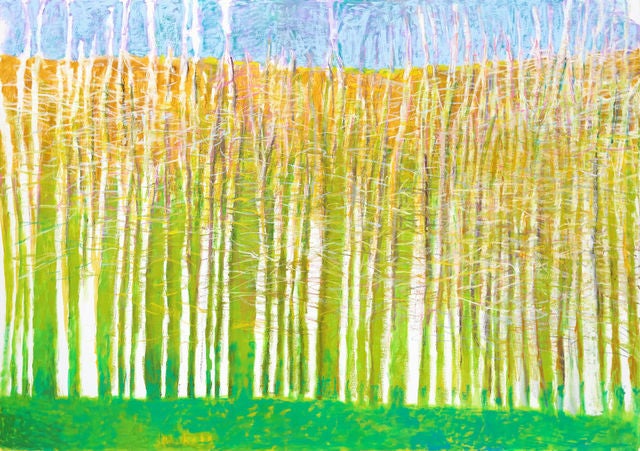I’ve always relished Fall and Winter: trees gone bare, red leaves on wet pavement, snow, darkness.
“Really, Claire?” my mother says, shaking her head at me.
For her, Fall and Winter tend to bring with them week-long sinus infections and dark, low moods: November, December, January, these are months to survive through, no more. By February, the days are longer and, in Virginia where she lives, the forsythia starts to sprout small yellow flowers and the fruit trees begin flowering. She loves it.
I, on the other hand, dread Spring. The dampness, the drifts of dirty snow, the bright half-warm, half-cold days. It’s overwhelming: all the breezy, flagrant sweetness and laughing women with sharp pink toenails and lime-green cardigans. “April is the cruellest month,” says T. S. Eliot. And while this phrase is overused to the point of meaninglessness, I remember stumbling across it while reading The Waste Land as an undergraduate and gasping, underlining the words over and over. How did he know!?
If you’re a poet (or anyone with a sensitive personality prone to changeable moods), Spring can pose some emotional challenges. It can be grating–cruel, even–when the beauty of the outside world (daffodils! baby robins! teens in love!) seems at odds with whatever’s going on in the hidden cupboards of the self.
For this reason, I avoid bouncy, Spring-themed poems. I find their optimism and gushiness irritating. However, Dorianne Laux’s “Come Spring” didn’t irritate–obviously, a Laux poem never would, but, with a title like “Come Spring,” I was suspicious.
Here it is, from Facts About the Moon (W. W. Norton, 2005):
Come Spring
The first warm days of spring, give them to me:
a tepid rain, crocus poking through last year’s leaves.
Give me the heart of it: pale yellow, frail blue,
trees bare but for the hard buds, the few birds.
To hear the screen door slam again. To shoo
the flies from the house, the bowled fruit.
I’ll take all of it, Mother of Summer, the smell
of manure shoveled over the potatoes. Diesel
fumes from the refuse truck. Scent of creek bottom,
feral, lime laced. Cracked effusion of rotting eggs.
Even sinus infections and rusty rake tines sunk
in rank earth near the shed. Mushroom spores.
The asthmatic crank of winter-bound bikes. Fevers,
flu, cold sores, loose ends. Even the crows,
hawking their dull black cloaks from the shiny wings
of irridescent spring. Let them ride the rippled air
over the barren Sunday parking lots, the farther fields,
where the weeds will grow thorny, wild and tall.
I like the form of the poem, first of all. I like how imperative it is, full of “Give me’s” and “I’ll take all of it’s.” I like how the speaker of this poem is bold enough to ask Time to hurry up a little faster, for Spring to just spring already. Oh, the bald-faced hubris of that.
Most of all, I like how Laux doesn’t gloss over Spring’s muddy, smelly core. For Laux, Spring not only brings with it “tepid rain” and “crocus poking through last year’s leaves,” it also ushers in the Earth’s stink: diesel fumes, rotting eggs, creek bed, shit. That’s a description of Spring I can get behind: one that acknowledges that the season’s pleasures are inherently entwined with its ugliness, its “mushroom spores” and “cold sores.”
Like I’ve said, I like this poem, but I keep searching for the “heart of it” and haven’t yet found it. Who is the speaker of the poem, I wonder? Why does she need Spring this badly? What darkness in her craves Spring’s gentle light? What part of her needs Spring’s cold mud?
The more I read “Come Spring” the more I tend to think that the speaker—that cocksure voice so full of imperative—is the disembodied voice of Desire itself, the voice of that essential part of ourselves who wants and wants and wants, can’t fill up. And isn’t that what Spring’s all about? The whole world buzzing with longing?
Longing can be cruel, as Eliot knew well.
As a card-carrying WASP/Genteel Southern Lady from Virginia, I can become rather shocked by my own needs, needs that poke up as brazenly as those first crocuses. And maybe that’s why Spring gets me good, every time: I encounter parts of myself—hungry parts, needy parts—that slept all Winter through and now are open-mouthed, blinking, awake.
Painting: Large Tree Parade, Wolf Kahn, 2013




